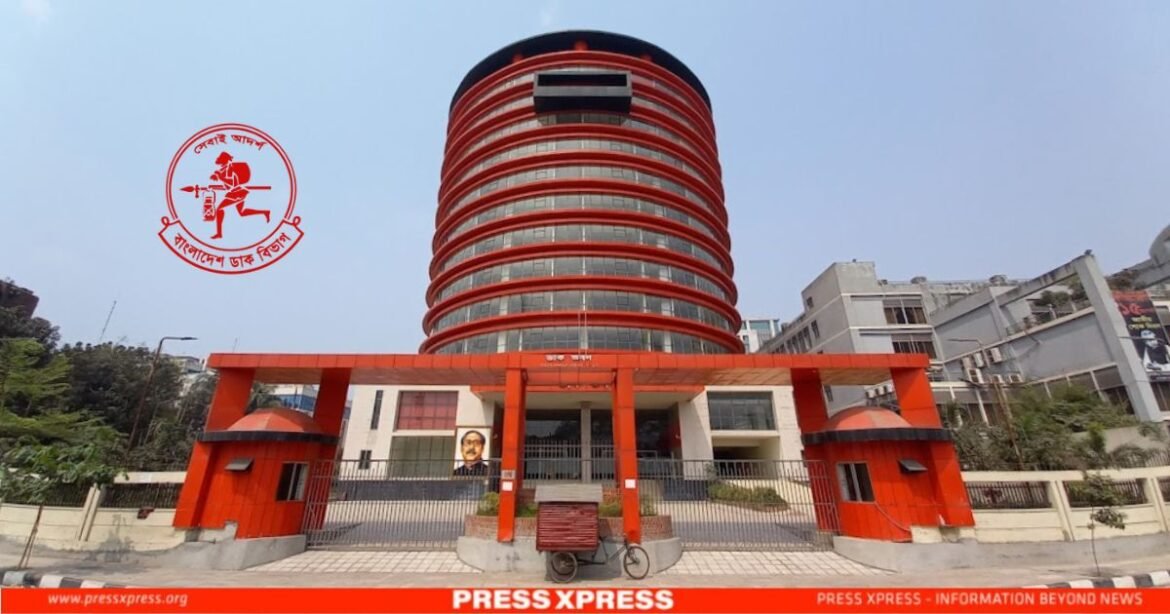Key Highlights:
- Enhanced accessibility to e-services
- Bridging the digital divide
- Efficient parcel tracking, bill payment, and e-commerce facilities
State Minister for Posts, Telecommunications, and Information Technology, Zunaid Ahmed Palak, announced a transformative plan to convert local post offices into Smart Service Points (SSP) as part of the vision to build a Smart Bangladesh. This initiative aims to enhance accessibility to over 325 e-government services alongside traditional postal services, bringing convenience to even the most remote villages.
You can also read: Capacity-Building in Bangladesh Health Sector: WHO Steps In
“We have 500 post offices in the district and upazila headquarters of the country, which are in very excellent positions. We will set up smart points there alongside the government’s post office services,”
– Zunaid Ahmed Palak.

Minister highlighted the significance of this initiative in bridging the digital divide and promoting economic inclusion across the country. By leveraging the existing network, infrastructure, and workforce of post offices, the government aims to ensure that every citizen, regardless of their location, can access essential e-government services, including banking facilities.
Smart Post Centers
The inauguration of ‘Koira’, a smart post center in Khulna’s Koyra, marked the beginning of this ambitious project. Crown Princess Victoria of Sweden, UNDP Goodwill Ambassador, graced the event, emphasizing the global importance of such initiatives. The presence of key figures like Minister Saber Hossain Chowdhury and Director General Tarun Kanti Sikdar underscored the government’s commitment to digital innovation.
Future Prospects
Palak revealed that the conversion of five post offices into smart post centers has commenced on a trial basis, with Koira leading the way. The government plans to extend this transformation to 500 more centers in the near future. This strategic move aligns with the broader goal of achieving a Smart Bangladesh by 2041, facilitating efficient goods delivery through a network of 10,000 post offices across the nation, which is a project of only Tk 49 crore.
Revolutionizing Rural Accessibility with SSPs
The state minister emphasized the pivotal role of SSPs in integrating digital solutions with traditional postal services. These smart service points are poised to revolutionize rural areas by offering services like parcel tracking, bill payments, and e-commerce facilities. Palak expressed strong optimism about the transformative impact of SSPs in enhancing efficiency and accessibility in Bangladesh’s rural landscape.

Post Offices Transformed into E-Centres: Background and Overview
According to an official document, a comprehensive plan was laid out to transform a total of 8,500 post offices into e-centres by June 2017. This initiative, considered a pivotal milestone in realizing the objectives of “Vision-2021,” aims to bridge the digital chasm between rural and urban populations by granting access to modern ICT-based technologies.
Furthermore, the government has outlined plans to extend the electronic money order service to remote areas across the country. Initially launched on a limited scale in 104 post offices on May 1, 2010, the service has since been expanded to encompass 1,150 post offices, including all district head post offices and upazila post offices. This expansion was fueled by the burgeoning demand for swift and efficient money transfers to locations where beneficiaries can promptly access and utilize funds.
Recognizing the inadequacies of the traditional paper-based money order service, which was deemed time-consuming, expensive, and inefficient, the Bangladesh Post Office introduced a new money order service known as the Electronic Money Transfer Service (EMTS), colloquially referred to as the Mobile Money Order Service.

Additionally, the government has articulated its commitment to extending banking services to grassroots communities through the implementation of the Postal Cash Card. Initially operational in 31 post offices in Dhaka and Comilla, this service has been gradually expanded to encompass post offices with heightened commercial significance. The Postal Cash Card serves to mitigate the risks associated with cash-carrying while facilitating access to encashment and remittance services at post office counters and ATM booths, functioning analogously to conventional debit cards, credit cards, and plastic money.
Moreover, the postal department has undertaken initiatives to fortify the postal transportation system, thereby facilitating the provision of e-commerce, m-commerce, and logistic services to rural populations. Under this project, the department procured 118 vehicles by June 2017.
Furthermore, additional projects have been launched to construct or repair 270 dilapidated post offices by June 2018 and to automate the activities of 134 offices, including 71 head post offices and 13 main and sorting offices, through computer hardware and integrated web-based application software. Plans have also been finalized to construct 1,000 ICT-based rural post offices and automate an additional 1,438 post offices by the ensuing June.
In conclusion, the government’s initiative to convert post offices into Smart Service Points represents a significant stride toward building a digitally inclusive society and realizing the vision of a Smart Bangladesh. By harnessing technology and innovation, these SSPs are set to redefine the landscape of postal services, ensuring seamless access to essential services for all citizens.


